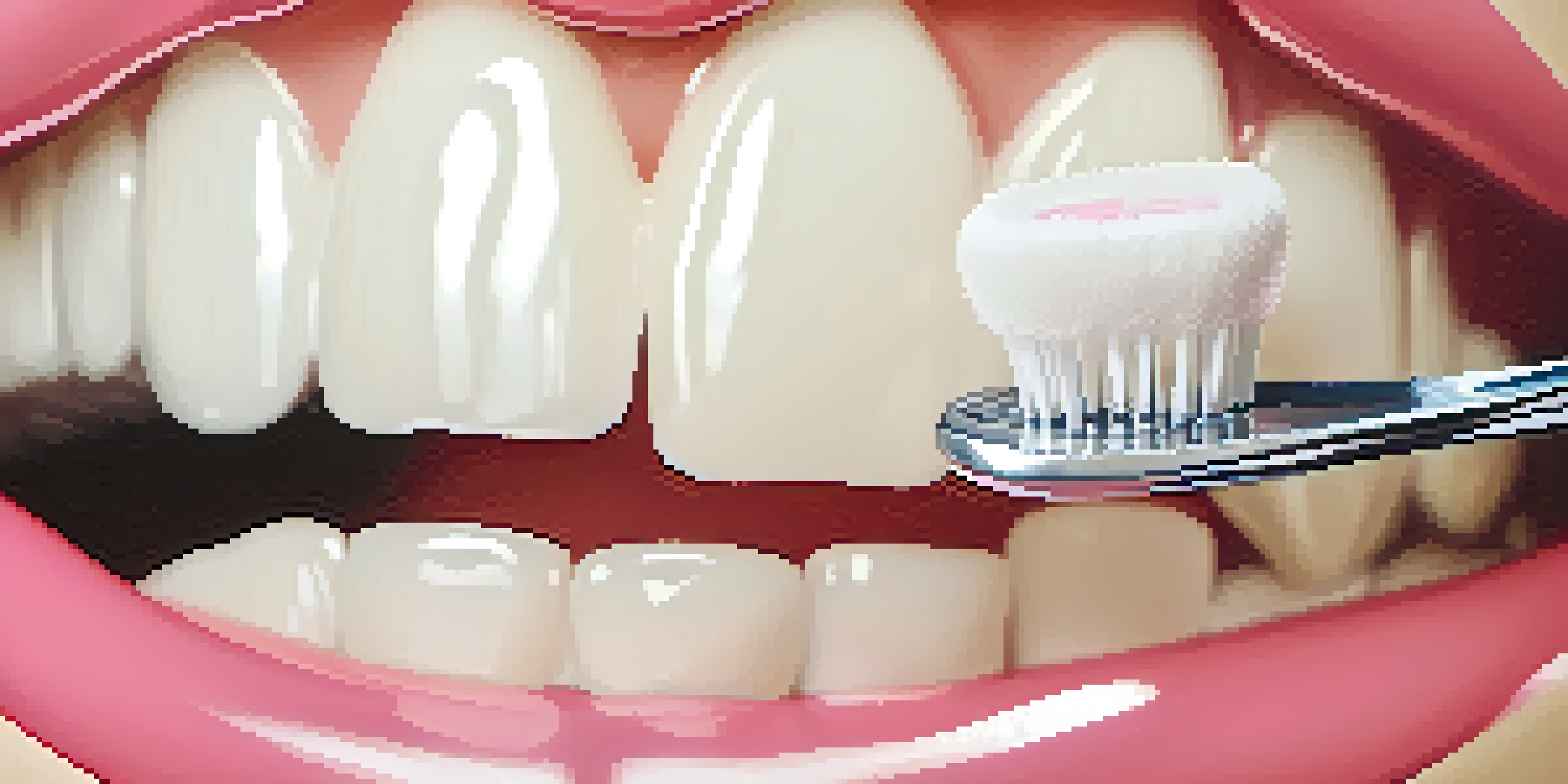The Link Between Oral Health and Heart Disease Explained

What is the Link Between Oral Health and Heart Disease?
Research has shown a significant connection between oral health and heart disease. Bacteria that cause gum disease can enter the bloodstream, potentially leading to heart issues. This link highlights the importance of maintaining good oral hygiene for overall health.
Oral health is a window to your overall health.
When plaque builds up in the mouth, it can lead to periodontal disease, which has been associated with inflammation in the body. This inflammation can affect the arteries, increasing the risk of cardiovascular conditions. Thus, keeping your gums healthy is crucial for your heart.
While the exact mechanisms are still being studied, it's clear that poor oral health can contribute to heart disease. Regular dental check-ups can help catch problems early, ensuring both your mouth and heart stay healthy.
Understanding Gum Disease and Its Risks
Gum disease, or periodontal disease, begins with plaque buildup that can irritate the gums. If not treated, it can lead to more serious issues, including tooth loss and increased cardiovascular risk. Understanding this condition is essential for preventing its progression.

The body responds to gum disease with inflammation, which can travel through the bloodstream. This systemic inflammation can damage blood vessels and lead to heart disease. Therefore, taking gum disease seriously is vital for heart health.
Oral Health Impacts Heart Health
Poor oral hygiene can allow harmful bacteria to enter the bloodstream, increasing the risk of heart disease.
Regular brushing and flossing can help prevent gum disease. If you notice symptoms like swollen or bleeding gums, it's essential to consult a dentist promptly to avoid complications.
How Oral Bacteria Affects Heart Health
The mouth is home to a variety of bacteria, some of which are harmful. When oral hygiene is neglected, these bacteria can multiply and enter the bloodstream. This process can lead to inflammation in the arteries, a precursor to heart disease.
The mouth is the gateway to the body, and taking care of it is crucial for preventing diseases.
One particularly concerning bacteria is Streptococcus, which has been linked to heart infections. These infections can damage heart valves and lead to serious complications. By maintaining good oral hygiene, you can help limit the growth of harmful bacteria.
Regular dental cleanings can significantly reduce the bacterial load in the mouth. This not only improves your oral health but also lowers the risk of heart-related issues, creating a win-win situation.
The Role of Inflammation in Heart Disease
Inflammation is a common factor in both gum disease and heart disease. When the body detects harmful bacteria in the mouth, it triggers an inflammatory response. This response can affect the entire cardiovascular system, leading to increased risks.
Chronic inflammation can damage blood vessels and lead to plaque buildup in the arteries. This process can restrict blood flow and increase the likelihood of heart attacks or strokes. Hence, managing inflammation is crucial for heart health.
Inflammation Links Gums and Heart
Chronic inflammation from gum disease can damage blood vessels and contribute to cardiovascular issues.
Adopting an anti-inflammatory diet rich in fruits, vegetables, and omega-3 fatty acids can also support both oral and heart health. Combining dietary changes with good oral hygiene practices can make a significant difference.
Regular Dental Visits: A Heart Health Strategy
Visiting your dentist regularly is more than just keeping your smile bright; it's a proactive approach to heart health. Dentists can identify early signs of gum disease and other oral health issues. Early intervention can prevent complications that may affect your heart.
During dental check-ups, professionals can also provide guidance on effective oral hygiene practices. They can help you understand the importance of flossing and using mouthwash to reduce bacteria. This knowledge empowers you to take charge of your oral health.
Incorporating dental visits into your health routine is a simple yet effective strategy. Just as you schedule annual physicals, consider regular dental appointments a key component of your overall wellness plan.
Healthy Lifestyle Choices for Better Oral and Heart Health
Making healthy lifestyle choices plays a crucial role in both oral and heart health. Eating a balanced diet, exercising regularly, and avoiding tobacco can help reduce the risk of gum disease and heart disease alike. These habits not only benefit your body but also enhance your quality of life.
For example, a diet rich in fiber can promote healthy gums, while omega-3 fatty acids are known to reduce inflammation. Incorporating these foods into your meals can provide dual benefits for your mouth and heart. It's all about making smart choices.
Regular Dental Visits Matter
Frequent dental check-ups can help detect gum disease early, reducing the risk of complications affecting heart health.
Additionally, staying hydrated helps maintain saliva flow, which is essential for neutralizing acids in the mouth. Drinking plenty of water is a simple yet effective way to support both oral hygiene and cardiovascular health.
The Importance of Education and Awareness
Educating yourself about the connection between oral health and heart disease is vital. Awareness can motivate you to prioritize dental hygiene and make informed lifestyle choices. Understanding the risks associated with poor oral health empowers you to take action.
Many people are unaware of the serious implications that gum disease can have on heart health. By sharing information and engaging in conversations, we can help spread awareness and encourage preventive measures. Knowledge is a powerful tool.

Consider discussing these topics with your healthcare provider or dentist during your visits. They can offer personalized advice and resources to enhance your understanding and commitment to maintaining both oral and heart health.